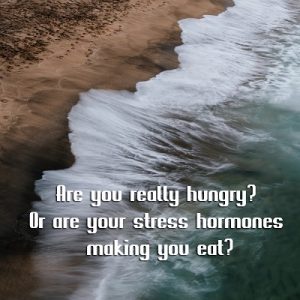 Stress is something that we all deal with. And we all have our own ways of dealing with it. One of the most common ways that people deal with stress, especially chronic stress, is eating.
Stress is something that we all deal with. And we all have our own ways of dealing with it. One of the most common ways that people deal with stress, especially chronic stress, is eating.
When we are stressed, our bodies release a stress hormone called cortisol, as well as the hunger hormone, ghrelin.
Ghrelin stimulates the release of dopamine in the brain, which tells the body that it wants to eat. Cortisol is what triggers our cravings for foods that are salty, sweet, and fried.
In other words, when you are feeling stressed, you suddenly have a strong appetite and an intense desire for foods that give you a burst of energy and pleasure.
However, how do you know when you are eating out of hunger and when you are reaching for food because you are stressed?
The Difference Between Stress Hunger and Physical Hunger
There are many differences between eating because you are stressed out and eating because your body physically needs it. However, when you are stressed it can be difficult to tell the difference. Here are some of the biggest differences between stress eating and eating because you physically need it.
- When you are hungry because of stress, it comes on suddenly and feels overwhelming. Physical hunger comes on gradually and doesn’t demand to be instantly satiated.
- When you are physically hungry, all food sounds good. You just want something to eat. However, when the hunger is due to stress you will find yourself craving specific foods, such as cheesecake or pizza.
- When you are eating due to stress, you are typically eating mindlessly without really thinking about how much you are eating. However, when you are eating for physical hunger, you tend to be more aware of how much you are eating and when you are full.
- Physical hunger is satiated when your stomach is full. If you are stress eating, your mind will still want more food even when your stomach is full. This is because stress hunger doesn’t come from the stomach. There is no hunger pang, instead, you tend to be fixating on the texture, taste, and smell of a specific food that you can’t get out of your head.
- When you are eating to deal with stress, there are often feelings of guilt after you eat. This can be because you ate a whole pint of ice cream or a whole bag of chips and you know it isn’t good for you.
How You Can Stop Stress Eating
Knowing that you are stress eating is the first step to being able to overcome the habit because you are acknowledging that eating isn’t the issue. The real issue is the stress and that needs to be dealt with to completely overcome stress eating.
One of the best ways to overcome stress eating is to take mindfulness training. A study that was published in the Journal of Obesity found that women who took mindfulness training were less likely to stress eat. Some of this mindfulness training included learning stress reduction techniques, how to effectively recognize hunger, and how to pay attention to the taste of the foods they were eating.
Eating for joy or to make yourself feel better isn’t always a bad thing. If you can recognize the reason, you are reaching for those snacks and can do so in moderation. Focus on the taste and texture of what you are eating. Enjoy one brownie instead of the whole batch, or one bowl of ice cream instead of the whole tub.






